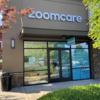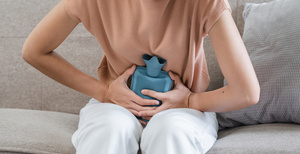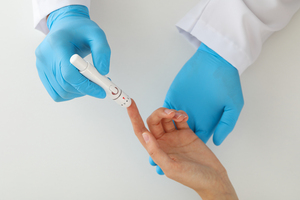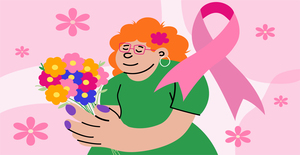Professional Ear Wax Removal
in West Linn, OR
Own a clinic? Add your location.
Help patients book appointments with you on Solv. It's free!
20 instant-book locations

Legacy Health- GoHealth Urgent Care, Oregon City
Legacy Health- GoHealth Urgent Care

AFC Urgent Care, Oregon City
AFC Urgent Care

Legacy Health- GoHealth Urgent Care, Lake Oswego
Legacy Health- GoHealth Urgent Care

Legacy Health- GoHealth Urgent Care, Johnson Creek
Legacy Health- GoHealth Urgent Care

ZoomCare Super, Tualatin Valley Super
ZoomCare Super

ZoomCare, Bridgeport Village
ZoomCare

ZoomCare, Wilsonville
ZoomCare

ZoomCare, Woodstock
ZoomCare

Zoomcare, Happy Valley
Zoomcare

AFC Urgent Care, Tigard
AFC Urgent Care

ZoomCare, Multnomah Village
ZoomCare

ZoomCare, Hawthorne
ZoomCare

ZoomCare, Scholls Ferry
ZoomCare

Legacy Health- GoHealth Urgent Care, Raleigh Hills
Legacy Health- GoHealth Urgent Care

Legacy Health- GoHealth Urgent Care, Sherwood
Legacy Health- GoHealth Urgent Care

ZoomCare, East Burnside
ZoomCare

ZoomCare, NE MLK and Davis St.
ZoomCare

ZoomCare Super, Lloyd District Super
ZoomCare Super

ZoomCare, Pearl District
ZoomCare

ZoomCare, NE Broadway and 6th
ZoomCare
Own a clinic? Add your location.
Help patients book appointments with you on Solv. It's free!
About Professional Ear Wax Removal
Dirt, bacteria, and other small particles that could irritate your ear canal and cause hearing loss are shielded by ear wax. On the other side, too much ear wax can obstruct your ear canal and cause hearing loss. Knowing how to safely and effectively remove ear wax can help you safeguard your hearing and ear health.
Why do we have ear wax?
Ear wax is a natural substance that protects your ears by trapping microscopic debris like dust and bacteria that might otherwise injure them. According to the National Library of Medicine, ear wax also protects the sensitive skin inside your ear canal from water-related irritation (NLM).
As it moves from the inside of your ears to the outside of the ear canal, ear wax gathers dead skin cells, debris, and hair. According to Harvard Medical School, ear wax has antibacterial and antifungal properties, making it an effective natural ear cleanser. It continues by stating that if your ears do not produce or hold enough ear wax, they will be itchy and unpleasant.
Treatment of a common ear condition
Ear wax removal, according to the National Library of Medicine, can help you prevent and avoid hearing loss. According to the National Library of Medicine, most cases of ear wax buildup can be treated at home using treatments that soften the wax so it can be easily removed or washed out. It goes on to state that you may need to seek medical help in some circumstances to avoid injuring your ears or causing an infection.
According to the National Library of Medicine, hearing loss caused by ear wax buildup is usually temporary and disappears after the blockage is removed. Hearing loss that persists after wax removal should be checked and treated by a physician.
The side effects of excessive ear wax
Excessive ear wax can cause ear discomfort and hearing problems, according to the National Library of Medicine. According to the National Library of Medicine, ear wax buildup is associated with ear pain, a perception of blocked ears, and tinnitus (inner ear noises). It's also possible that you have a partial hearing loss that gets worse with time.
The development of ear wax
Ear wax is also known as cerumen. It is a mixture of secretions from sebaceous glands and sweat glands in the outer ear canal's walls, according to Harvard Medical School.
Secretions flow through the inner ear canal and into the outer ear canal when you chew or talk with your jaw, where they dry out and flake. This allows older ear wax deposits to flow out or be removed more easily, according to Harvard Medical School.
Where wax comes from
According to Harvard Medical School, ear wax is a natural ear cleanser produced by glands in the ear canal to protect your ears from harmful dirt and other waste. No one knows why some people have more ear wax problems than others, according to the article.
Older adults with coarse, wiry hairs in their ears have more ear wax buildup problems than others, according to the University of Texas at Austin. Because some hearing aids are designed in such a way that wax cannot easily flow out of the ear canal, hearing aid users have more ear wax than non-users.
Ear wax removal tips
Cotton swabs are frequently used to remove ear wax buildup. Many medical experts advise against using this treatment, according to UC San Diego, because it can push wax deeper into the ear canal. It goes on to state that using wax-softening ear drops, which can be obtained at practically any pharmacy, is the easiest way to clean your ears.
To soften ear wax, the National Library of Medicine suggests using baby oil or mineral oil. With a small piece of cloth or tissue wrapped around your finger, you may simply remove the wax from the outer ear canal once you can see it.
The National Library of Medicine recommends consulting a doctor if you're having problems removing ear wax. A doctor can employ other irrigation procedures, as well as a curette or suction equipment, to remove ear wax.
Tips for hearing-aid wearers
Hearing aid users should have their ear canals inspected for additional wax every three to six months, according to the National Library of Medicine. Ear wax is responsible for 60 percent to 70% of hearing aid degradation, according to Harvard Medical School. If you wear a hearing aid, have your doctor check your ears for ear wax buildup at least once every six months.
Ear Wax Removal FAQs
How much does an ear wax removal cost in West Linn?
Without insurance, an ear wax extraction in West Linn can cost between $40 and $110. If your insurance covers ear wax removal, you will typically only be responsible for a $5 to $75 copay.
Is ear wax removal covered by my insurance?
Ear wax extractions and consultations with ENT specialists are sometimes covered by insurance, especially if your problem is severe. Book a consultation and check your coverage in the West Linn area today.
How can I book an ear wax removal in West Linn?
Regardless of the kind of doctor you are looking for for an eye exam, Solv can help you book an appointment. Simply search for West Linn-area eye doctors, find a provider, and book the most convenient time for you. Be sure to include any pertinent issues you are dealing with and include “eye exam” as your reason for visit.
Can I make a same-day appointment for ear wax removal in West Linn?
Same-day and next-day appointments for eye exams are available through Solv. Search for West Linn-area doctors, find a provider, and book an ear wax removal as early as today.
How do I find the top-rated ENT specialists in West Linn?
Solv gathers reviews, ratings, and other data on West Linn-area ENT specialists to ensure the clinics provided meet our standards. Search for an ENT specialist, see what previous patients think, and book an ear-wax removal with a top-rated doctor today!
Who should get an ear wax removed?
Individuals who are experiencing hearing loss, ear pain, leakage, or unusual coughs should book an appointment for an ear wax extraction.
Are video visits available with ENT specialists in West Linn?
While a thorough ENT examination cannot be performed over video, your doctor can evaluate you or your child for most concerns, such as loss of hearing, ear pain, leakage or other basic concerns using telemedicine. They can discuss a care plan, prescribe ear wax softeners, and recommend an in-person visit if deemed necessary, all while you are safe and comfortable at home in West Linn.
Are video visits with ENT specialists covered by my insurance?
Telemedicine ear wax removal consultation coverage will vary depending on your circumstances. Typically, if your insurance will not cover an in-person visit, it won’t cover similar appointments via telehealth. Since routine ENT consultations are usually covered by medical insurance, it is likely video visits with ENTs will be similarly covered.
If ear wax is removed, will my hearing improve?
According to the National Library of Medicine, clearing the ear wax obstruction usually restores your hearing completely. Hearing loss is commonly caused by ear wax buildup and lasts until your ears are cleaned.
What will happen if I don’t clean my ears?
You may develop an excessive amount of ear wax if you do not clean your ears on a regular basis. Pain or itching in the ear, ringing in the ear, and a feeling that the ear is full or clogged are all symptoms of too much ear wax, according to the National Institutes of Health (NIH). According to the National Institutes of Health, if you do not clean your ears, you may experience odor or discharge from the ear, as well as hearing loss.

Updated on Jan 25, 2026
Solv has strict sourcing guidelines and relies on peer-reviewed studies, academic research institutions, and medical associations. We avoid using tertiary references.
Related Searches
Thyroid Test in West Linn, OR
STD Testing in West Linn, OR
DNA Test in West Linn, OR
Lab Tests in West Linn, OR
CMP Test in West Linn, OR
Strep Test in West Linn, OR
COVID-19 Testing in West Linn, OR
Sports Physicals in West Linn, OR
Pediatric Urgent Care in West Linn, OR
Diabetes Test in West Linn, OR
RSV Test in West Linn, OR
Pulmonary Function Test in West Linn, OR
Glucose Test in West Linn, OR
Blood Test in West Linn, OR
A1C Test in West Linn, OR
Drug Test in West Linn, OR
Urinalysis in West Linn, OR
Basic Metabolic Panel in West Linn, OR
H Pylori Test in West Linn, OR
TB Test in West Linn, OR
Flu Test in West Linn, OR
Retail Clinic in West Linn, OR
COVID-19 Pill in West Linn, OR
Urgent Care in West Linn, OR
Cholesterol Test in West Linn, OR
Pregnancy Test in West Linn, OR
Mono Test in West Linn, OR
DOT Exam in West Linn, OR
Diagnostic Test in West Linn, OR
Allergy Testing in West Linn, OR
Vitamin D Test in West Linn, OR
Hepatitis test in West Linn, OR
Aetna Urgent Care
Blue Cross Blue Shield Urgent Care
Cigna Urgent Care
COVID-19
Flu
United Health Urgent Care
» All services in West Linn, ORFind ear wax removal
Nearby cities
Popular Brands in West Linn
Everyday Healthcare, Simplified
Expert advice to help you live your best life







